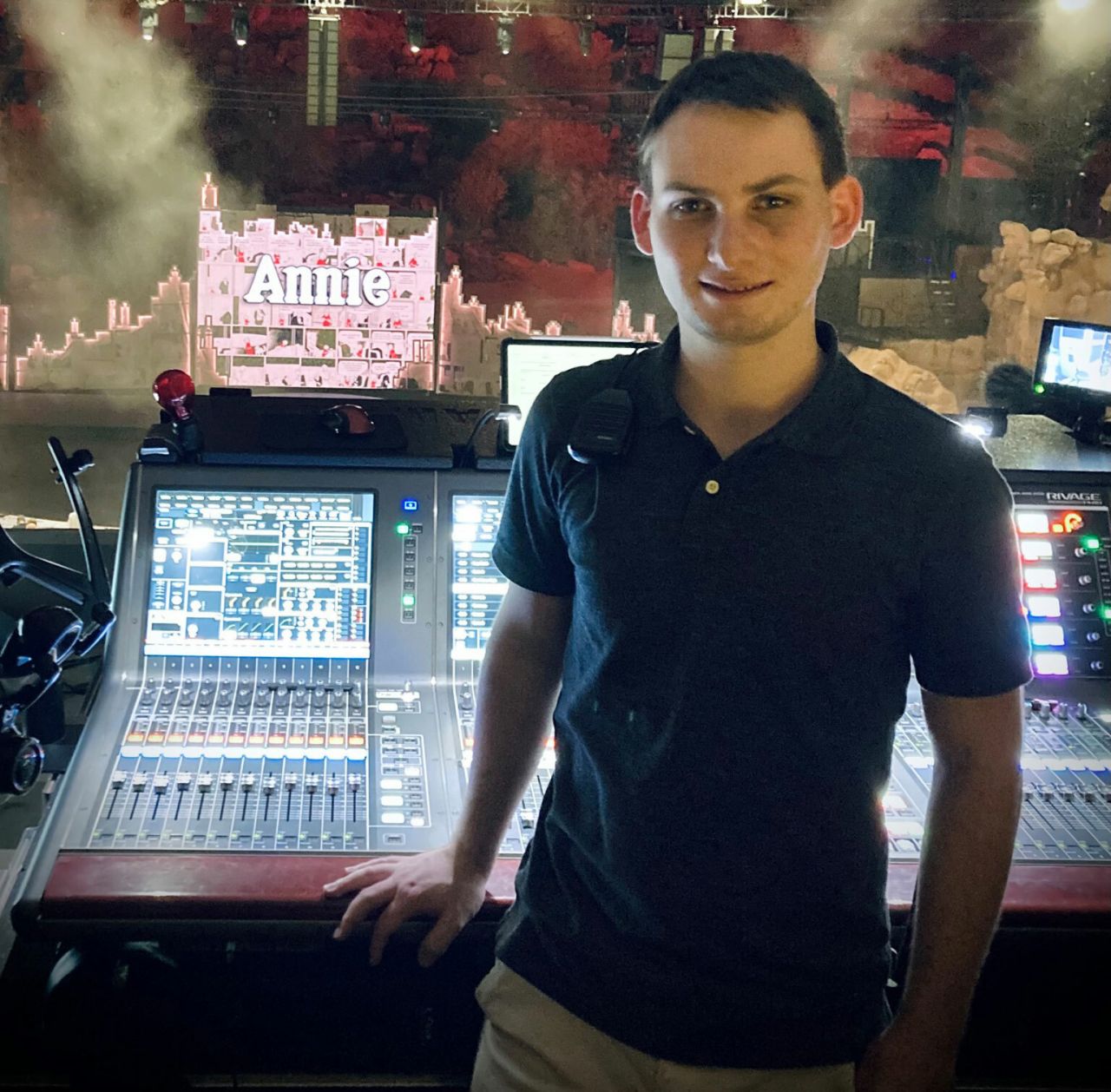February 23, 2022
Penn State graduate Alex Pregel discusses his work on touring Broadway’s ‘Waitress’

By Heather Longley
Audiences are excited to see the return of Broadway to Penn State with “Waitress” on March 3, and Penn State graduate Alex Pregel is excited to bring it.
He’s no stranger to syncing up the sound of Broadway. While a student at Penn State, he worked on many productions, including “Legally Blonde,” “A Little Night Music,” “Hands on a Hard Body,” and “many fun recording projects with the School of Music and the trombone studio,” he said.
In 2021, Pregel received a BFA degree in design and technology, and he has quickly gained professional — and life — experience. He most recently did sound at Tuacahn Center for the Arts in Utah, often referred to as “Broadway in the Desert” for its consistent schedule of touring Broadway productions.
“Between Tuacahn and touring, I have had the ability to see many parts of the country that I would probably not be able to otherwise,” he said. “The drive from Penn State to Utah to eventually Florida was an experience I won’t soon forget.”
Pregel said that his work on “Waitress” as an assistant sound designer — referred to as “A2” — is as part of a team. While the sound engineer is responsible for implementing the audio, its design is broken down into elements, such as speaker position, mic frequency coordination and sound mixing.
“As the A2, I am primarily responsible for the upkeep of the backline — any audio on the deck, microphones, communications and band,” he said. “Often during the show, I am monitoring the system, adjusting microphones and putting out fires as they occur. On other nights, I can be seen mixing the show.”
Q: What’s the most interesting or challenging venue you’ve designed sound for and why?
A: I would have to say Tuacahn. It is a massive 2,000-seat outdoor amphitheater set in a canyon with towering red rock walls that stretch up hundreds of feet all around. This made for a ten-second reverb that could really be heard during the nightly fireworks. Temperatures can soar to 115 and higher during the day and dip down into the 30s some nights. And if you don’t know, sound propagation acts differently as the temperature changes.
Q: You checked into your room and now have the day to yourself to roam State College. Where are you going?
A: I wish I had that kind of time at State College! The reality is the bus pulls up at 7:30 a.m., and I spend the morning and afternoon loading in the show. After dinner, we do the show and then load out until 2 a.m., where I hop back on the bus and drive to the next venue.
But if I did have a free day back at State College, I would visit some of my favorite restaurants (Local Whiskey, Federal Taphouse and Corner Room), take a walk around campus, and visit some of my professors in the School of Theater and Music.
Q: I read that you have “acting experience.” If you had to step in for any role in the “Waitress” cast, which character could you fill in a pinch?
A: I don’t know where you read that! I did have to take an acting class for my degree, and I’ll just say it was an experience to say the least. But if I had to choose one, I would say Joe, who is the Diner’s owner and is a grumpy 80- to 90-year-old. I think I could pull that off.
Heather Longley is communications specialist at the Center for the Performing Arts.
